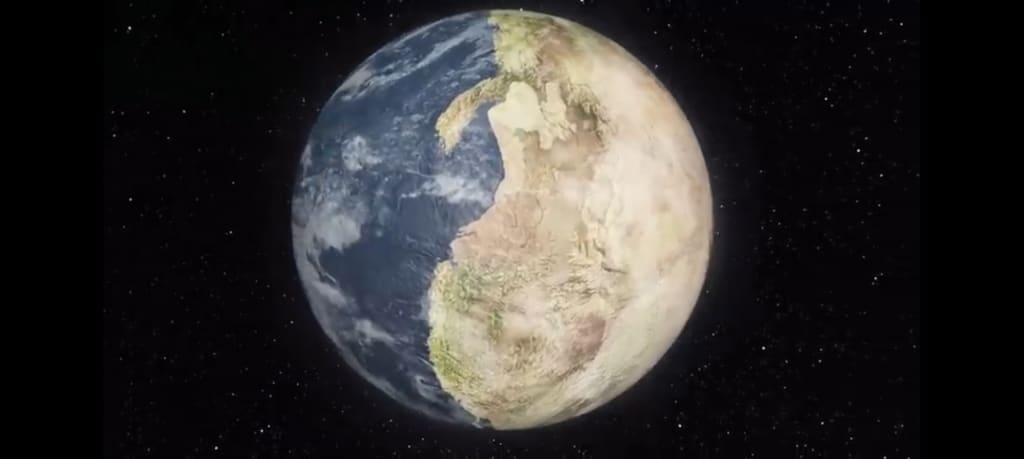WHAT IF EARTH WAS 50% LAND AND 50% LAND
KNOWLEDGE FUEL

Imagine a world where the land and water are evenly split, with 50% of the Earth's surface covered by continents and the other 50% covered by oceans. This would have a significant impact on our planet as we know it. With such a distribution, new possibilities for vacations would arise, and surprisingly, the color of your urine would play a role in this scenario.
Water is essential for sustaining life on a planet. That's why scientists search for signs of liquid water when looking for potential alien life. Currently, 71% of Earth's surface is covered by water, primarily in the form of five interconnected oceans. However, if we were to replace a quarter of this ocean water with land, the consequences would be drastic.
Firstly, the sea levels would dramatically decrease, thanks to the need to balance the land-to-water ratio. The sea levels would plummet by approximately three kilometers. This would result in significant changes to the Earth's appearance. The regions around the North and South Poles would become completely arid, and every continent would expand. The newly emerged landmass would be roughly equivalent to the combined surface areas of Asia, Europe, Africa, and North America. This vast amount of unused space would transform the planet's landscape.
The areas that were once deep ocean would now reveal extensive corridors and steep crevasses, creating a diverse topography. The one global ocean would cease to exist, as all the oceans would be separated from each other. On the other hand, all the continents would merge into one connected landmass. This transformation would have positive implications for evolution.
In the early days, humans migrated across the globe by foot, without the aid of ships or planes. Our ancestors ventured away from Africa around 70,000 to 100,000 years ago, gradually spreading to Asia and eventually reaching the Americas. In a world with a 50-50 split between land and water, this migration would have been even more accessible, as vast stretches of land would connect continents.
In conclusion, if the Earth were evenly divided between land and water, it would drastically alter the planet's appearance and provide new opportunities for exploration and travel. The balance between continents and oceans would reshape the world as we know it, and the color of your urine would have no direct correlation to these changes.
With the implementation of the 50-50 splits, a wider coverage would now be possible. This would enable you to embark on that long-awaited trip around the world, all on your own two feet. However, this alteration in the balance between water and land would not be without consequences. The reduced water coverage on the surface would disrupt our ocean currents, leading to a serious destabilization of the climate. These currents play a crucial role in distributing the heat absorbed by the oceans globally. Disrupting them would result in even colder temperatures around the north and south poles, while the equatorial regions, which are already hot, would become even hotter. Furthermore, this disruption would accelerate climate change as the oceans could not absorb as much carbon dioxide from the air. The excess carbon dioxide would then envelop the planet, causing a rise in temperatures. Additionally, there would be a decrease in rainfall levels, leading to dangerous droughts and the emergence of new deserts in many inland areas. Therefore, although there would be an abundance of new land available, large stretches of the earth could become uninhabitable. Plants, animals, and humans would all need to adapt to being less reliant on water or find more efficient ways to utilize it. Water scarcity could potentially result in animals evolving to be smaller and transitioning to a strictly carnivorous diet. Unfortunately, the diverse and abundant marine life that currently thrives in our oceans would struggle to survive. Lastly, one of the most unexpected consequences that you would have to adjust to is the permanent change in the composition of your urine. Normally, urine consists of over 90% water, but with less water in your daily life, it would become much darker and emit an ammonia-like odor. In conclusion, draining every drop of water from the oceans would have far-reaching and significant impacts on our planet and our way of life.






Comments (1)
This article stands out with its quality writing and informative approach.